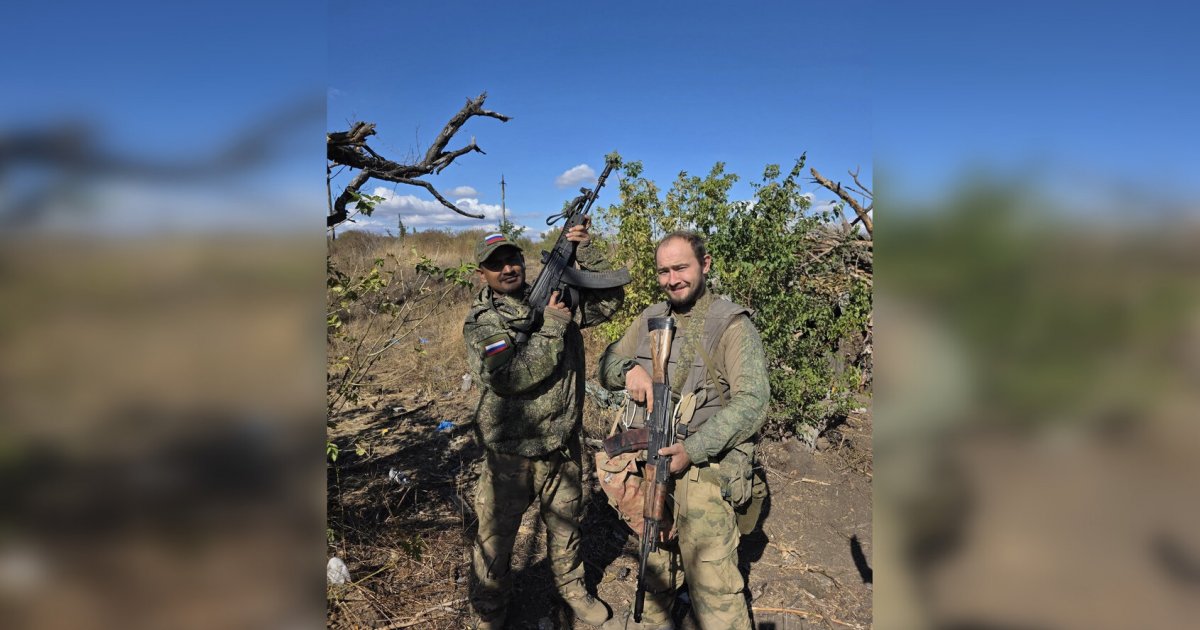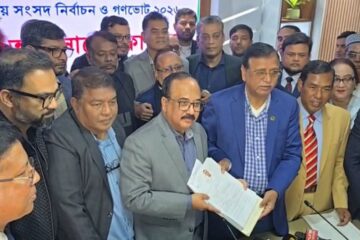Hassan (pseudonym), a young man from Mymensingh, flew to Russia on August 10 last year with a legal work visa arranged through a local travel agency.
He was meant to be a welder.
Instead, his family learned months later, via a secret app message from Hassan, that he had been enrolled with Russian forces and sent toward the Ukraine front.
His elder brother has appealed to the Ministry of Foreign Affairs for help; the family lives in daily fear.
Hassan’s case is one of several that are surfacing as aid groups, families and investigators try to map a worrying pattern: Bangladeshi men who travel to Russia on work papers and soon find themselves coerced, or recruited, into combat.
The Brac Migration Program has recorded at least ten confirmed family reports so far; officials warn the real figure is far higher, with many families cut off and unable to trace loved ones.
“Our helpline has received multiple applications from families describing the same sequence: valid visas, legal travel, then illegal coercion,” said Shariful Hasan, associate director of Brac’s migration unit.
“In almost every case, relatives say their passports were taken, contracts were signed in Russian, and those who resisted were threatened or beaten.”
Grim returns, missing men
Local media and families report confirmed deaths among those who joined the fighting.
Yasin Mia Sheikh, 22, from Gouripur, died after a missile strike in Ukraine, relatives say.
Nazrul Islam, 47, of Rajbari, was reported dead after seven months missing.
Mohammad Akram Hossain, 25, of Brahmanbaria, also died serving with Russian forces, families told Dhaka Tribune.
Other families have had no word for months.
Ayan Mondal of Bagerhat reportedly moved toward the Ukrainian border after arriving in Russia; relatives suspect he was killed in a drone strike but have no body.
Amit Barua of Comilla, hired as an electrician for a Russian firm, was last heard from in late April before relatives were told he had died in combat.
Trafficking routes, false promises
Investigators say recruiters exploit legal migration channels.
Many victims were sent for supposed work in oil, construction or logistics through transit points such as the United Arab Emirates; some left with Bureau of Manpower, Employment and Training (BMET) clearance or tourist visas.
Families report paying between Tk 700,000 and Tk 800,000 to brokers.
“Traffickers promise legitimate employment, then confiscate passports and force recruits to sign documents they cannot read,” Brac’s Shariful Hasan explained.
“Those who refuse are reportedly threatened, physically abused, or coerced with false criminal charges.”
The Criminal Investigation Department (CID) has opened a probe into alleged trafficking and recruitment for the Russia–Ukraine war.
In June, CID arrested one suspected ringleader, Muhammad Alamgir Hossain, accusing him of sending about 50 people to Russia and of forcing at least 11 into frontline roles.
CID briefings describe multimodal deception: some victims were sent on Umrah or tourist visas and later transferred; others had BMET documentation.
“A group first sent 10 people to Saudi Arabia on Umrah visas promising jobs in factories. After Umrah, they sold them onward to Russia,” CID sources said in a statement.
“There, some were handed to soldiers and later trained and sent to the front. Those who resisted faced torture.”
Social media activity has intensified the problem.
Videos circulate showing foreigners, including men claiming Bangladeshi origins, in Russian uniforms, demonstrating weaponry or offering step-by-step advice on joining the conflict.
Some footage includes testimonials urging compatriots to enlist; others show combat scenes and identify local commanders.
Law enforcement officials suspect middlemen and diaspora networks are amplifying recruitment efforts.
What officials say, and don’t
The government has acknowledged individual incidents but stopped short of describing systemic coercion.
Foreign Affairs Adviser Touhid Hossain told reporters that while Bangladesh cannot stop every individual from travelling, the government will investigate credible claims of forced recruitment.
“If someone is being forced to fight, we will look into it and work to bring them back,” he said, adding there was no confirmation yet of large-scale coercion.
Brac and family advocates say more proactive coordination is needed between the Ministry of Expatriates’ Welfare, the Foreign Ministry, BMET and law enforcement to track departures, verify employers, and support families.
“Authorities must treat each missing-person complaint seriously, verify recruitment channels, and pursue traffickers under criminal law,” Shariful urged.
A human cost
For families like Hassan’s, the paperwork and investigations provide cold comfort.
“He phones sometimes, but we don’t know where he is or if he will return,” Hassan’s brother told Dhaka Tribune.
“We paid for his job abroad so he could earn and support the family. We never imagined this.”
As CID continues its probe and Brac documents more cases, the recurring themes are stark: legal visas used as cover, brokers exploiting desperation, opaque transfers across borders, and families left in limbo.



